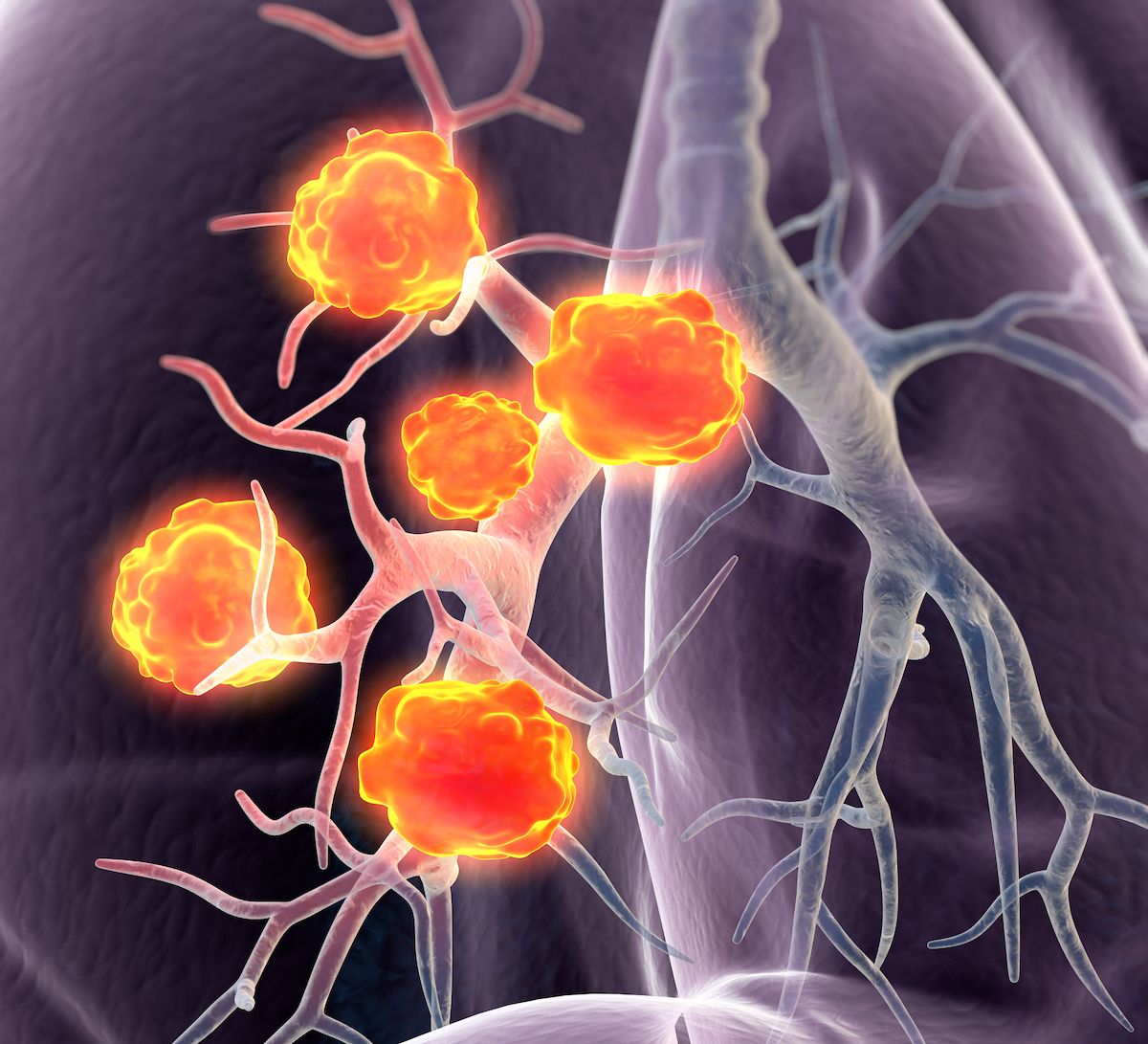Perioperative Nivolumab Combo Earns EU Approval in PD-L1+ Resectable NSCLC
Findings from the CheckMate 77T study support the approval of this nivolumab-based regimen in the European Union.
The FDA approved the perioperative nivolumab regimen for patients with NSCLC harboring no known EGFR mutations or ALK rearrangements based on data from the CheckMate 77T trial in October 2024.

The European Commission has approved nivolumab (Opdivo) plus chemotherapy before surgery followed by adjuvant nivolumab for adults with resectable PD-L1–positive non–small cell lung cancer (NSCLC) at a high risk of recurrence, according to a press release from the developers, Bristol Myers Squibb.1
The regulatory decision followed a recommendation from the Committee for Medicinal Products for Human Use to approve the perioperative nivolumab regimen for this NSCLC population in March 2025.2
Supporting data for the approval came from the phase 3 CheckMate 77T study (NCT04025879) evaluating the perioperative nivolumab regimen vs neoadjuvant placebo plus chemotherapy before adjuvant placebo among 461 patients with resectable NSCLC. Data showed that the nivolumab combination reduced the risk of disease recurrence, progression, or death by 42%, thereby meeting the study’s primary end point of event-free survival (EFS; HR, 0.58; 95% CI, 0.43-0.78; P = .00025). With a median follow-up of 25.4 months, the 24-month EFS rates were 65% in the nivolumab arm and 44% in the placebo arm.
Additional findings published in the New England Journal of Medicine showed that a pathological complete response (pCR) occurred in 25.3% (95% CI, 19.8%-31.5%) of those who received nivolumab vs 4.7% (95% CI, 2.4%-8.3%) of patients who received placebo (OR, 6.64; 95% CI, 3.40-12.97).3 Additionally, the major pathological response (MPR) rate was 35.4% (95% CI, 29.2%-41.9%) and 12.1% (95% CI, 8.2%-17.0%) in each respective treatment arm (OR, 4.01; 95% CI, 2.48-6.49).
The safety profile of the perioperative nivolumab regimen in the CheckMate 77T trial was comparable with prior reports in NSCLC. Investigators reported no new safety signals.
“This approval brings another perioperative immunotherapy treatment option for select patients with resectable NSCLC in the EU [European Union], helping address an ongoing need for interventions that can meaningfully reduce the risk of cancer returning after initial therapy,” Dana Walker, MD, MSCE, vice president and nivolumab global program lead at Bristol Myers Squibb, stated in the press release.1 “With this approval, [nivolumab] with chemotherapy followed by adjuvant [nivolumab] has the potential to change the course of certain patients’ disease by significantly reducing the risk of cancer recurrence and improving long-term outcomes earlier in the treatment journey.”
In the double-blind CheckMate 77T trial, patients were randomly assigned 1:1 to receive perioperative nivolumab plus chemotherapy or placebo plus chemotherapy. Treatment during the neoadjuvant phase consisted of nivolumab at 360 mg or matched placebo in combination with platinum doublet chemotherapy every 3 weeks for 4 cycles. Following definitive surgery, patients received nivolumab at 480 mg or placebo every 4 weeks for a year.
The trial’s primary end point was EFS. Secondary end points included overall survival (OS), pCR, and major molecular response. According to the press release, assessment is ongoing for OS.
Patients 18 years or older with resectable stage IIA to IIIB NSCLC, treatment-naive disease, and no brain metastases were eligible for enrollment in the study.4 Other eligibility criteria included having the ability to provide surgical or biopsy tumor tissue for biomarkers and an ECOG performance status of 0 or 1.
Those with active, known, or suspected autoimmune disease or any positive test result for hepatitis B, hepatitis C, or HIV were ineligible for enrollment. Patients were also unable to enroll if they had any prior treatment for NSCLC, including cytotoxic therapy, immunotherapy, targeted agents, or radiotherapy.
The FDA approved the perioperative nivolumab regimen for patients with NSCLC harboring no known EGFR mutations or ALK rearrangements based on data from the CheckMate 77T trial in October 2024.5
References
- Bristol Myers Squibb receives European Commission approval for perioperative regimen of neoadjuvant Opdivo (nivolumab) and chemotherapy followed by adjuvant Opdivo for resectable, high-risk non-small cell lung cancer with PD-L1 expression ≥1%. News release. Bristol Myers Squibb. May 16, 2025. Accessed May 19, 2025. https://tinyurl.com/mr34336m
- Bristol Myers Squibb receives positive CHMP opinion for perioperative regimen of neoadjuvant Opdivo (nivolumab) and chemotherapy followed by surgery and adjuvant Opdivo for resectable non-small cell lung cancer in patients with tumor cell PD-L1 expression ≥1%. News release. Bristol Myers Squibb. March 28, 2025. Accessed May 19, 2025. https://tinyurl.com/4x66z54r
- Cascone T, Awad MM, Spicer JD, et al. Perioperative nivolumab in resectable lung cancer. N Engl J Med. 2024;390(19):1756-1769. doi:10.1056/NEJMoa2311926
- A study of neoadjuvant chemotherapy plus nivolumab versus neoadjuvant chemotherapy plus placebo, followed by surgical removal and adjuvant treatment with nivolumab or placebo for participants with surgically removable early stage non-small cell lung cancer. ClinicalTrials.gov. Updated July 23, 2024. Accessed May 19, 2025. https://tinyurl.com/2h3k7kbj
- FDA approves neoadjuvant/adjuvant nivolumab for resectable non-small cell lung cancer. FDA. October 3, 2024. Accessed May 19, 2025. https://tinyurl.com/bdfcps54